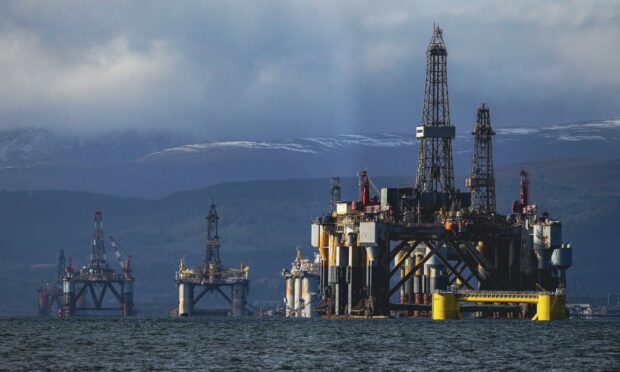North Sea energy projects worth around £100 billion need unlocking to safeguard energy security and get the UK to net-zero by 2050, a new report says.
According to trade body Offshore Energies UK (OEUK), around half of a potential £200bn total energy spend between now and 2030 – split between oil and gas, carbon cature and storage (CCS), hydrogen and offshore wind – needs “renewed certainty” to be signed off.
Policy support, a stable and competitive tax regime and improved planning timelines are “critical”, the group says.
Is UK in the slow lane on energy policy?
Securing private capital is key to meeting the country’s future energy needs.
The Office for Budget Responsibility has estimated around £1.4 trillion is needed to get to net-zero, including £1trn from private sources.
While the UK has grappled with policies like the windfall tax on oil and gas producers, and other issues like grid connection for offshore wind, the US umveiled its Inflation Reduction Act package for green investment more than a year ago.
Launching OEUK’s Economic Report 2023, chief executive David Whitehouse said: “The UK mustn’t just become a good place to do energy business, it must become irresistible.
“Our Economic Report shows that as the global race for energy investment accelerates, the UK must compete by making the most of its diverse homegrown industry, from oil and gas to offshore wind, hydrogen and carbon capture.”
“Globally, this is the lesson other countries have learnt. We must not get left behind.”
As well as stability for oil and gas, the report highlights the importance of key enablers like grid connection and port infrastructure for technologies including offshore wind.
More than 180 fields which produced 45% of UK output last year are due to shut this decade.
Oil production in the first half of 2023 hit its lowest since records began in 1995. Gas was the second-lowest on record.
Two fields are expected to be sanctioned this year, while 20 others will be shut down.
OEUK policy manager Ross Dornan said: “I think we should be concerned about these trends.
“They’ll leave us more exposed to imports, and they’re really harming the economic contribution of our industry in the future.”
OEUK says up to £80bn of potential offshore wind investment between now and 2030 requires nearly £30bn of private investment.
A possible spend of up to £20bn is projected for CCS and hydrogen, and there’s £35bn of potential oil and gas capital investment over the next 10 years.
,About half pf the latter figure is for projects on existing fields and half on new fields.
Energy Minister Gillian Martin said: “OEUK’s Economic Report 2023 underlines the vital importance of our energy sector. As Scotland transitions to a net-zero economy, we must simultaneously focus on meeting our energy security needs, reducing emissions and, critically, ensuring a just transition for our oil and gas workforce as North Sea resources decline.
“The Scottish Government is wholly focused on unleashing the economic and energy potential of Scotland’s renewables sector, while investing £500 million in a Just Transition fund for Aberdeen and the north-east to ensure that we fully capitalise on the enormous benefits our energy transition offers.”





Conversation